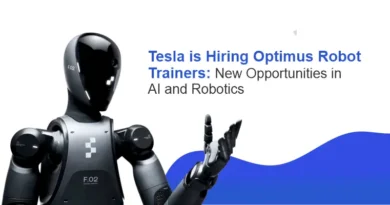The Woman Who Stood up And Won Google-Battle
We cannot stay strong all the time, and we cannot compromise on things we shouldn’t. Yes, you can ignore things for a while, but you have to take steps when it becomes a norm. Shannon does the same. We all have some breaking point. And when it happens, it can be a little thing, an event that usually wouldn’t important.
Shannon Wait’s moment came while her Google-issued water bottle broke one day. The information center she served in was hot, so she requested another one. But, she states the Google subcontractor did not give her one. That time sparked a chain response that led to an expression past week. Google confirmed a statement stating the company’s employees had the freedom to discuss pay and requirements with each other.
It might seem unusual that it even required to be announced. But in real fact, it was the conclusion of Shannon’s encounter with the firm. Her story is one of the administration’s overreach, a narrative that reflects light on managerial methods that have become compatible with Big Tech.
Shannon completed her history degree in 2018 and began working at a Google information center in the US the following February, making $15 (£10.90) an hour. “You’re heating the servers, which comprises trading out hard drives, swapping motherboards, heaving heavy batteries, they’re like 30lb (13.6kg) each,” she states. “It’s really challenging work.”
Did Pandemic affect Google?
Google’s offices are popular for obtaining creative, alternative, and fun – with table tennis tables, free lunches, and music rooms. Though, what Shannon reports sounds less pleasant.
“People aren’t playing sports all day like you see in the films… the data center is totally changed,” she answers.
Shannon worked as a contractor at Google. That implies that though she served in a Google data center, she was hired by a subcontractor called Modis, a group of organizations owned by another company, Adecco. Shannon states when the Pandemic hit, the job got more difficult. The merest number of jobs per shift extended. But there was a sweet attitude.
Does Google practically apply its announcements?
“Nearby the time of May 2020, Google declared that they were going to manage the Pandemic in a distinguished way. They stated that they were proceeding to give rewards to every worker, including contractors, who serve in person,” she says. “The time arrived that we were thought to receive that bonus and it never arrived in any of our bank records. We started becoming worried like, you know, I absolutely could use this additional money.”
In this case, she assumes workers started communicating to each other about the bonus and how much they were qualified to get. “We started questioning each other about salary, but any time it came up in front of administrators we were advised not to discuss about it.”
Shannon states she was even given the word by a manager telling: “It is nevermore ok to address compensation with your companions.” Shannon did ultimately get her bonus but announces she had become disillusioned. She had expected to do a full-time job at Google. Even though she saw a culture of “perma-temps,” temporary workers who she assumes would never get performed staff, no matter how much they worked.
Disappointed by management, Shannon ended what she says was her breaking time. When Google gave her a water bottle, and the lid on it broke.” She tells the same thing repeated to her co-worker, a full-time Google representative. However, Shannon states although her co-worker was provided a new bottle, she wasn’t. She left for home and written down a Facebook post.
Finally, she announces she had enough. “The next day, I got asked into a conference room, and they said to me that my post was in contravention of the NDA, and I was a protection risk and demanded to hand over my badge and my laptop instantly, and to leave the site.”
Shannon was a member of the Alphabet Workers Union, and the union held up her case. In February, they registered two cases on her account under unfair labor work laws. One that she had been halted illegally – for talking about helping a union. The other that her supervisors had asked her, illegally, not to talk about her wages.
Last month Google, Modis, and the Alphabet Workers Union ended a contract. Shannon’s halt was upturned. Google confirmed a document stating its workers “have the freedom to address wage rates, rewards, and working requirements.”
It was a success for both Shannon and the newly-formed organization.



